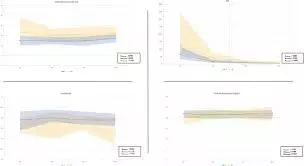- Home
- Medical news & Guidelines
- Anesthesiology
- Cardiology and CTVS
- Critical Care
- Dentistry
- Dermatology
- Diabetes and Endocrinology
- ENT
- Gastroenterology
- Medicine
- Nephrology
- Neurology
- Obstretics-Gynaecology
- Oncology
- Ophthalmology
- Orthopaedics
- Pediatrics-Neonatology
- Psychiatry
- Pulmonology
- Radiology
- Surgery
- Urology
- Laboratory Medicine
- Diet
- Nursing
- Paramedical
- Physiotherapy
- Health news
- Fact Check
- Bone Health Fact Check
- Brain Health Fact Check
- Cancer Related Fact Check
- Child Care Fact Check
- Dental and oral health fact check
- Diabetes and metabolic health fact check
- Diet and Nutrition Fact Check
- Eye and ENT Care Fact Check
- Fitness fact check
- Gut health fact check
- Heart health fact check
- Kidney health fact check
- Medical education fact check
- Men's health fact check
- Respiratory fact check
- Skin and hair care fact check
- Vaccine and Immunization fact check
- Women's health fact check
- AYUSH
- State News
- Andaman and Nicobar Islands
- Andhra Pradesh
- Arunachal Pradesh
- Assam
- Bihar
- Chandigarh
- Chattisgarh
- Dadra and Nagar Haveli
- Daman and Diu
- Delhi
- Goa
- Gujarat
- Haryana
- Himachal Pradesh
- Jammu & Kashmir
- Jharkhand
- Karnataka
- Kerala
- Ladakh
- Lakshadweep
- Madhya Pradesh
- Maharashtra
- Manipur
- Meghalaya
- Mizoram
- Nagaland
- Odisha
- Puducherry
- Punjab
- Rajasthan
- Sikkim
- Tamil Nadu
- Telangana
- Tripura
- Uttar Pradesh
- Uttrakhand
- West Bengal
- Medical Education
- Industry
PIM-3 score and abnormal serum sodium levels related to development of AKI

Sodium and chloride disturbances have attracted increasing attention in recent years. Many pathophysiological effects are associated with hyperchloremia, including reduction in mean arterial pressure and acute renal disease.
PIM-3 score and abnormal serum sodium levels are correlated with AKI development suggests a new study published in the BMC Nephrology
Sodium and chloride disturbances have attracted increasing attention in recent years. Many pathophysiological effects are associated with hyperchloremia, including reduction in mean arterial pressure and acute renal disease. Pediatric patients undergoing liver transplantation are at risk of developing various electrolyte and biochemical abnormalities, with an impact on their postoperative outcomes.
A study was conducted to analyze the impacts of serum sodium and chloride levels on prognosis of Pediatric Liver Transplant receptors.
This was a retrospective analytical observational study performed in a single transplant reference center in Sao Paulo, Brazil. Included patients were pediatric patients who underwent liver transplantation between January 2015 and July 2019. Statistical regression analysis and General Estimating Equations analysis were performed to evaluate the impacts of sodium and chloride disturbances on the development of acute renal failure and mortality.
Results
A total of 143 patients were included in this study. The main diagnosis was Biliary Atresia (62.9%). Twenty-seven patients died (18.9%), and graft dysfunction was the main cause of death (29.6%). The only variable individually associated with 28-days mortality was PIM-3 score
Forty-one patients (28.6%) developed moderate or severe AKI. PIM-3 score, hypernatremia and hyponatremia were independently associated with the development of moderate/severe AKI.
In pediatric patients after liver transplantation, PIM-3 score, and abnormal serum sodium levels were correlated with AKI development.
Reference:
Luglio, M., de Carvalho, W.B., Tannuri, U. et al. Effects of serum sodium and chloride levels in the outcome of critically ill pediatric patients in the post-operative period of liver transplantation. BMC Nephrol 24, 141 (2023). https://doi.org/10.1186/s12882-023-03195-1
Keywords:
BMC Nephrology, Luglio, M., de Carvalho, W.B., Tannuri, U, Effects, serum sodium, chloride levels, outcome, critically ill, pediatric patients, post-operative period, liver transplantation, BMC Nephrology
Dr. Shravani Dali has completed her BDS from Pravara institute of medical sciences, loni. Following which she extensively worked in the healthcare sector for 2+ years. She has been actively involved in writing blogs in field of health and wellness. Currently she is pursuing her Masters of public health-health administration from Tata institute of social sciences. She can be contacted at editorial@medicaldialogues.in.
Dr Kamal Kant Kohli-MBBS, DTCD- a chest specialist with more than 30 years of practice and a flair for writing clinical articles, Dr Kamal Kant Kohli joined Medical Dialogues as a Chief Editor of Medical News. Besides writing articles, as an editor, he proofreads and verifies all the medical content published on Medical Dialogues including those coming from journals, studies,medical conferences,guidelines etc. Email: drkohli@medicaldialogues.in. Contact no. 011-43720751


